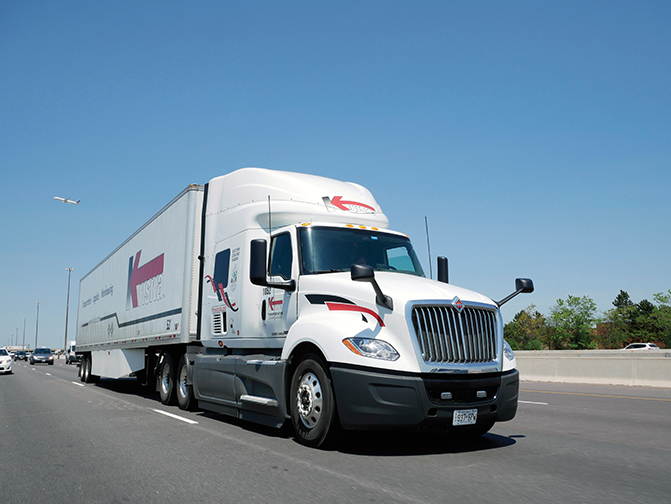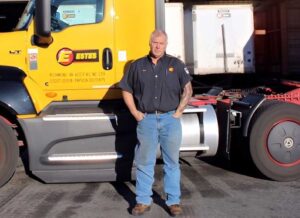Since 2015, Kriska Transportation Group (KTG) has been on a buying spree. The Ontario, Canada-based company has completed 10 acquisitions in less than six years, expanding its presence in Canadian and cross-border trucking and logistics markets.
David Tumber, whose tenure as chief operating officer aligns with this spate of mergers and acquisitions (M&A), said the market is ripe for continued expansion.
“[M&A] is common in our industry, and I think we will see more consolidation in the coming years, at least in the Canadian marketplace,” he said. “There’s a lot of first- or second-generation truckers out there who are getting on in years, and if they don’t have an obvious exit strategy or succession plan within the family, they’ll likely look to sell in the next few months to the next few years. We think it’s only going to pick up, especially coming out of the pandemic.”
Tumber said KTG isn’t the only company that’s been actively gathering acquisitions.
“I definitely don’t think we’re an outlier. I think there’s plenty of examples of those who have a similar growth strategy,” shared Tumber. “It’s such a tough industry to grow organically; it’s so highly commoditized, and drivers are so hard to come by. Good, loyal customers are hard to find, as are good employees in general.”
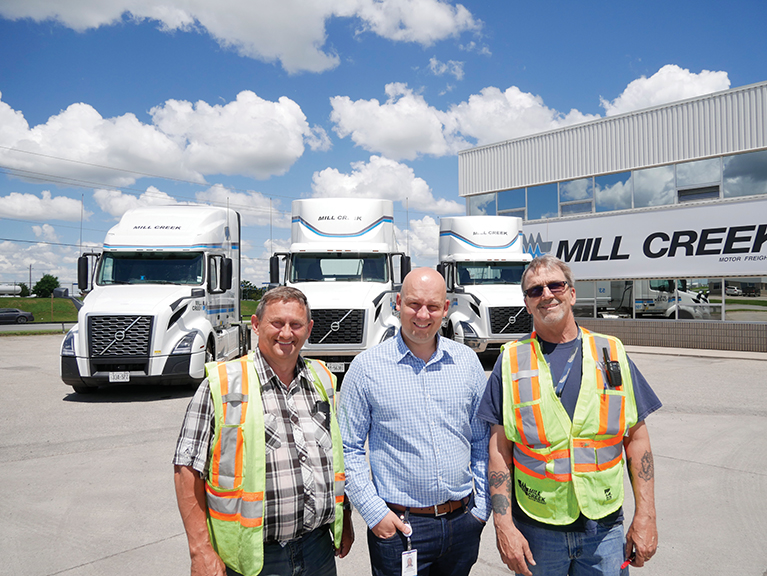
KTG itself was formed via the merger route when Kriska Holdings Ltd. (aka Kriska) partnered with The Mullen Group in 2014 to acquire Mill Creek Motor Freight of Ayr, Ontario. From Kriska and Mill Creek, the holdings have grown to include nine other companies, all of which were headquartered in Ontario or Quebec.
These holdings include JMF Transport and TransPro Freight Systems (since 2015), and Icon Transportation Logistics Ltd., Trailwood Transport and Nexus Freight (since 2019). Another company, refrigerated carrier BTC Express, was bought in 2018 and integrated into Kriska. Additionally, KTG acquired logistics brokerages Service Freight Systems in 2017 and Champion Express in 2019.
Already in 2021, the company has completed two mergers, Round the Lakes Motor Express and Ready to Load Logistics. Tumber said the strategy for identifying the right company to pursue is a multi-pronged approach.
“Capacity is certainly a component of it, as is revenue diversification,” he said. “Across the businesses that we now own that operate independently, none of them are on a hot streak at the same time and none of them are all down at the same time. When a market segment is challenged, it’s offset by another one that’s thriving. We’ve seen a lot of that, whether it be an industry vertical or a service type.”
Of course, the rules of diversification as a hedge against risk went out the window in 2020 when every aspect of the trucking industry was negatively affected by the COVID-19 pandemic in Canada as well as in the U.S. Tumber said as a cross-border carrier, there was more similarity than differences in the two countries’ response to the pandemic.
“(In the) early days of COVID, on both sides of the border, everybody was living minute to minute, hour to hour, day to day in a state of unknown,” he said. “Our operations group stayed in very close contact, and that was one benefit of being a bigger company. Not one of our general managers was stranded on an island on their own trying to figure this out.
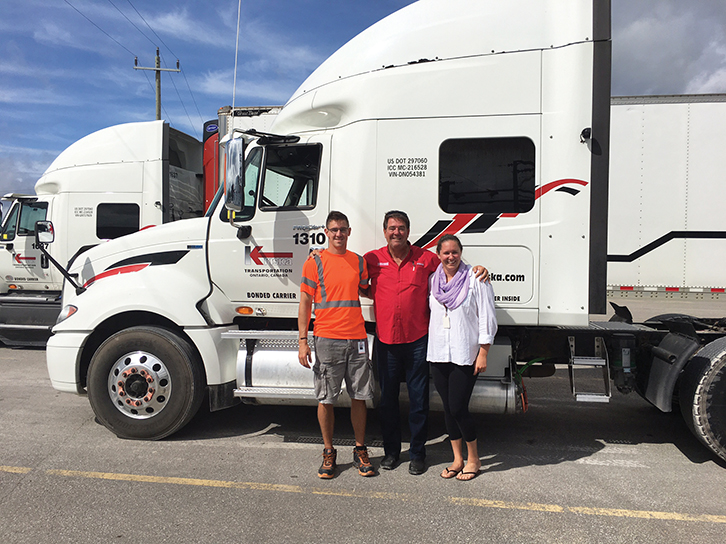
“I think in Canada, broadly speaking, our population was pretty quick to understand and adapt to wearing a face mask from a civic duty perspective,” he continued. “I think there was probably more resistance in the States among populations that were slower to buy into that as a necessary action.”
Tumber said one byproduct of the Canadian perspective toward the virus is many drivers were more willing to stay on the sidelines out of fear of contracting the disease. This presented management with stiff challenges, not only in terms of conducting regular business, but also in luring drivers back, especially once government subsidies started kicking in.
“The Canadian government was exceptionally generous to individuals and businesses who were impacted by COVID, so that would be a major difference between our two federal approaches to the economy and to the people,” he said. “We had probably 10% of our capacity decide the world was too dangerous for them and they weren’t going to drive. They were going to collect their benefits from the government and wait for this thing to pass.”
While most drivers did eventually return to work, Tumber said health concerns persist as mitigation efforts vary widely across provinces.
“The provinces, much like the states, have reacted differently,” he said. “In Ontario and Quebec where our businesses are, I think we started off controlling this and doing a good job on the front end, but we’ve probably done a pretty poor job in trying to stamp it out. It’s lingered and cases have grown, and we probably weren’t aggressive enough for long enough to get rid of this, which is exactly the same situation in the U.S.”
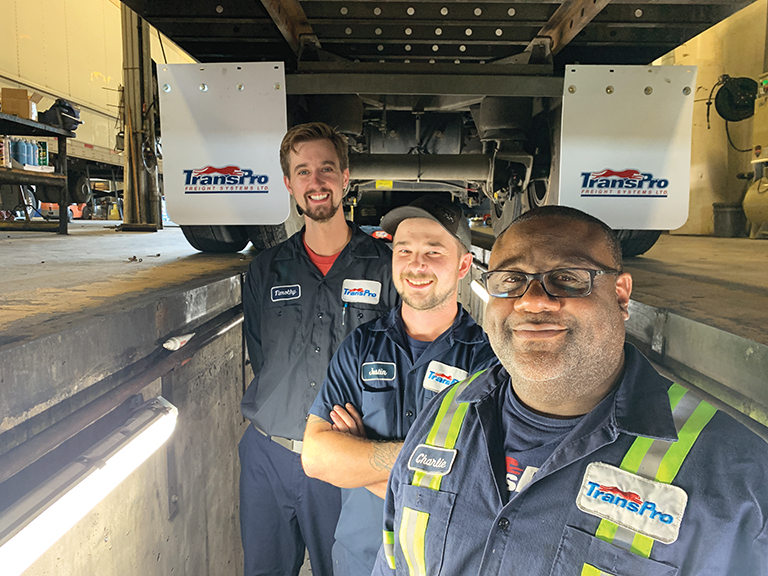
The pandemic is just the latest challenge when it comes to personnel, Tumber added. Driver shortages have been and continue to be a challenge for the industry and a major hindrance to growth.
“When you break it down to its simplest form, it’s tough to pull the wool over someone’s eyes and say trucking is something different than what it is,” he said. “At the end of the day, you’re getting behind the wheel of a truck and hauling products, sometimes across the country, and that takes you away from home. It’s the reality of the business. So, how do you make that attractive to somebody who, in a strong economy, has plenty of other options?
“Driver pay is something that will always be under the microscope and where the market warrants it, we do our best to increase the wages of our drivers,” he noted. “But I think it’s got a long way to go before it crosses that threshold of indifference. We’re a long way from that still, as an industry.”
Until it does, the company will continue to look for opportunities in the M&A market, purchasing outfits that add value and, not coincidentally, drivers as well. From there, Tumber said the onus lies on KTG and its culture to retain these.
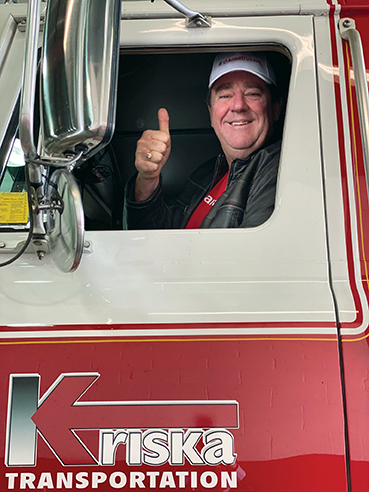
“There’s a lot of companies out there who are acquiring businesses, stripping them down, and giving little consideration to what’s made them unique and special in their history,” he said. “We’re different in that way. We’re a group that considers the businesses we buy as part of the family. We’re a group that considers the businesses we buy to have uniqueness that is worth preserving.
“I know that’s resonated with the businesses we’ve bought. The business owners care about their people and want to make sure that their people are being acquired by other good people. That’s important to us,” he concluded.
Dwain Hebda is a freelance journalist, author, editor and storyteller in Little Rock, Arkansas. In addition to The Trucker, his work appears in more than 35 publications across multiple states each year. Hebda’s writing has been awarded by the Society of Professional Journalists and a Finalist in Best Of Arkansas rankings by AY Magazine. He is president of Ya!Mule Wordsmiths, which provides editorial services to publications and companies.




